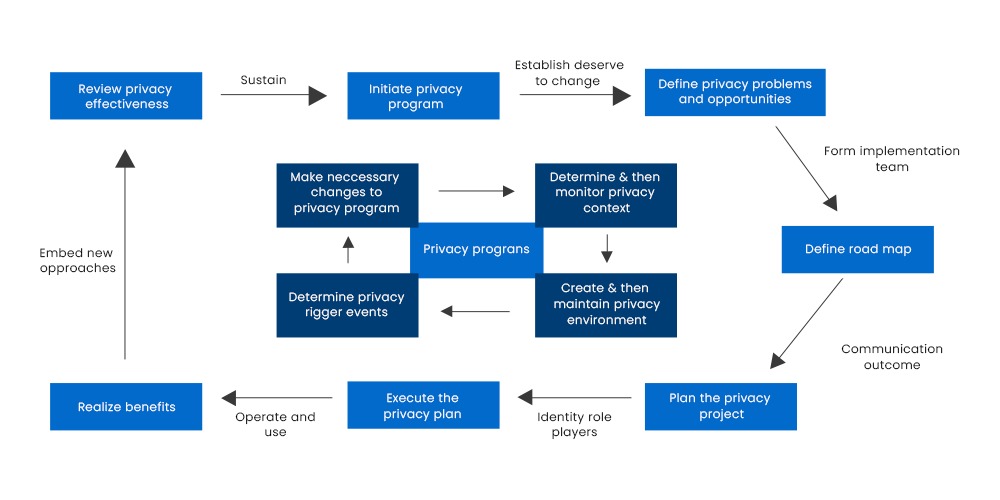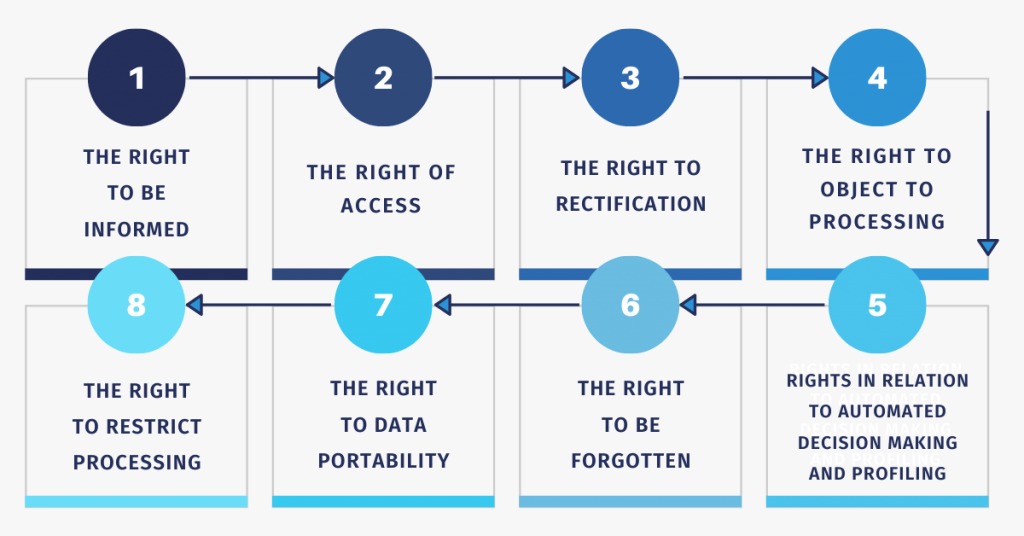
Managing Director, Netrika Consulting India Pvt Ltd, ASIS APAC Board Member
CFE, CII, FCIISCM, CATS, CCPS, CFAP

Managing Director, Netrika Consulting India Pvt Ltd, ASIS APAC Board Member
CFE, CII, FCIISCM, CATS, CCPS, CFAP

Director - Cyber Security
GDPR, or General Data Protection Regulation, is a European Union data privacy and security framework. Enacted in 2018, GDPR safeguards individuals' personal data by regulating its processing, transmission and storage. It grants individuals control over their personal data, mandates transparent data processing practices, and imposes strict penalties for non-compliance.
GDPR applies globally to entities handling EU citizens' data, promoting privacy rights and responsible data management in the digital age.
Organisations based outside the EU that monitor or offer goods and services to individuals in the EU will have to observe the new European rules and adhere to the same level of protection of personal data.
UK organisations handling personal data also need to comply with the GDPR, regardless of Brexit. If found non-compliant, consequences may include fines of up to 4% of global annual turnover or €20 million (whichever is higher).

GDPR rights afford individuals the ability to access, correct, and control their personal data. These rights, including the right to erasure and objection, empower individuals to ensure their privacy is respected and data processing is transparent and fair.

GDPR services act as sentinels, steering through data audits, privacy policy revisions, and compliance checkpoints. Employee education, vulnerability assessments, and incident response strategies fortify cybersecurity. The avant-garde involves DPIA evaluations, legal consultations, and consent protocols for a compliance tapestry. Meticulous documentation serves as the guardian, ensuring the secure haven of personal data in the dynamic landscape of cyberspace.
Companies often fail to adhere to GDPR standards, commonly in the form of poor data security and transparency lapses, which can lead to fines of up to 4% of global annual turnover or €20 million (whichever is higher). Beyond financial repercussions, non-compliance can lead to legal actions, reputational harm, and even suspension of data processing activities by regulatory authorities.
Engaging a GDPR compliance service provider is vital to steer clear of such potential financial and operational pitfalls. These specialists provide precise adherence to GDPR standards, averting costly mistakes, and streamline the compliance journey, saving resources while establishing a secure foundation for safeguarding sensitive data and fostering customer trust.
At Netrika, we're your dedicated partner in ensuring GDPR compliance and safeguarding your digital assets. Netrika offers tailored GDPR services, including GAP Assessment and Data Privacy Impact reports, custom policies, and a robust Privacy Governance Framework. We provide a strategic roadmap for phased implementation, thorough audits, and specialized guidance on key GDPR aspects.
Trust Netrika for comprehensive data protection solutions aligned with regulatory standards.
In accordance with the GDPR rule, companies must safeguard the privacy and personal information of EU people when conducting business within EU member states. Breaking the law might cost businesses massive amounts of money.
The EU general data protection regulation (GDPR) is the strongest privacy and security law in the world. This regulation updated and modernised the principles of the 1995 data protection directive. It was adopted in 2016 and entered into application on 25 May 2018.
There are 5 data processing principles covered under GDPR compliance, which include 1. Lawfulness, Fairness & Transparency; 2. Limitation; 3. Data minimisation; 4. Accuracy; 5. Storage limitation; 6. Integrity, Confidentiality; 7. Accountability.
All businesses, including those on other continents, who sell or store personal data about European citizens must comply with guaranteeing that they are following the GDPR regulations. The regulation may necessitate adjustments to your business practices.
The GDPR enables each country’s data protection authorities to impose sanctions, restrictions on data processing and fines on firms that break the law. The maximum fine is €20 million or 4% of worldwide sales.